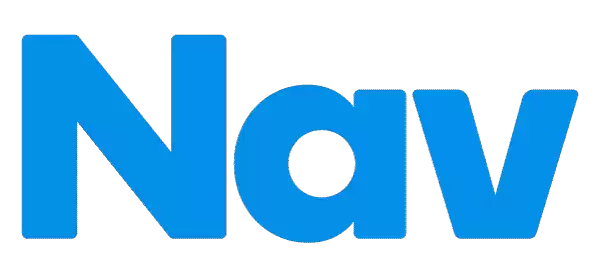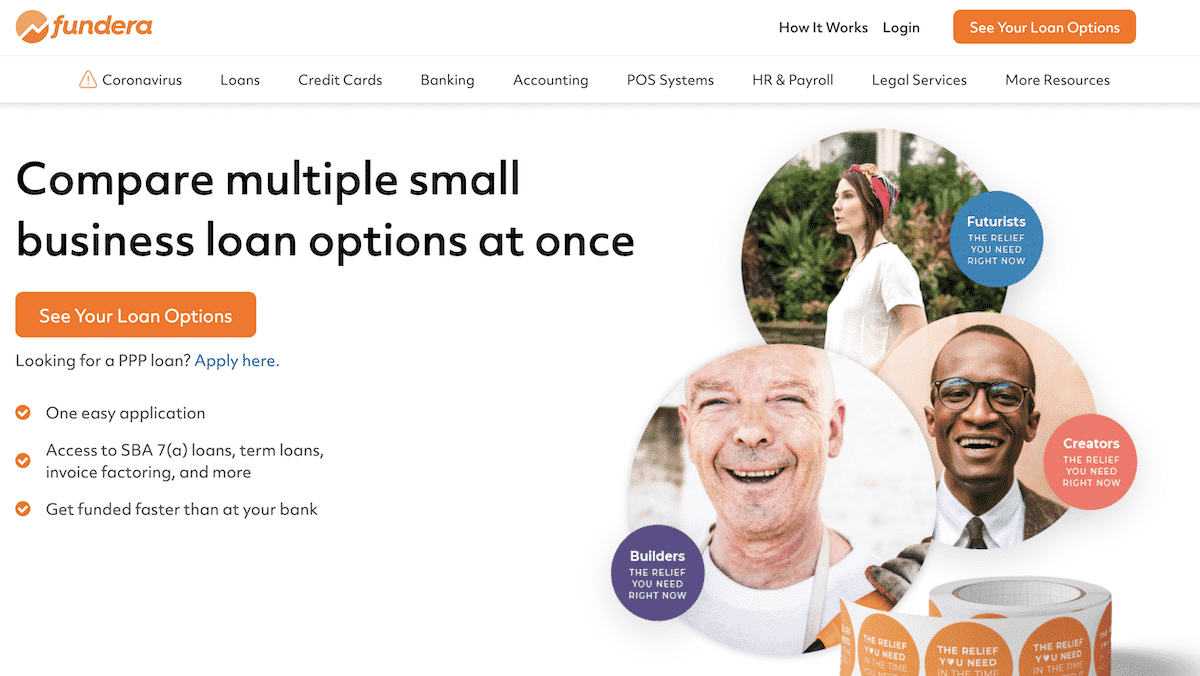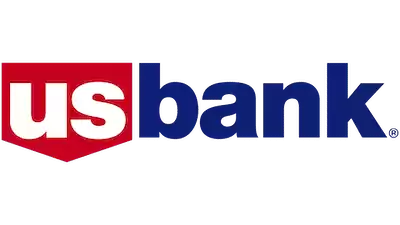|
|
|
|
|
Loan Amounts: $1,000 - $10 million
|
Loan Amounts: $2,500 - $5 million
|
Loan Amounts: $5,000 - $125,000
|
Learning how to get funding for your startup or small business in most economic climates is a challenge whether you are looking for capital to start your business or money to grow it. The more challenging aspect with the current state of affairs, finding funds to start or grow your business is harder than ever.
Here are some tips that will come in handy when seeking how to get funding for your startup or small business:
1. Compare your options
You can compare all of your funding options with just one easy application with sites like Fundera. Fundera’s partners offer a range of products, including SBA loans, lines of credit, short term loans, merchant cash advances, equipment loans, invoice financing, and personal loans (that can be used for business).
If you are completely overwhelmed by how to get the funding for your business, Fundera is one of the best places to start your search for business funding. You can see which funding options you’re eligible for and only have to provide basic business information.
Fundera makes it so easy to get and compare offers from the best funding options in the industry, with just one application. If you are interested you can get more information from Fundera here.
Discover the financial options you never knew you had and make your best business decisions yet. It's easy, free, and won't affect your credit.
- Time in Business: 1+ years
- Monthly Revenue: $25K+
- Minimum Credit Score: 680
2. Use Personal Savings
Many entrepreneurs may not be able to self-fund. However, the fact remains that 78 percent of startup business owners didn’t seek outside investment in their first year, according to the nonprofit organization SCORE.
If you don’t have enough money, there are still things you can do to improve that. You could find ways to make an extra $5,000 fast with part-time side income gigs. Some common ideas include selling plasma, flipping items, or taking gig economy work such as Lyft, Uber, DoorDash, or Instacart.
DoorDash provides more stable hourly pay but has lower earning potential. Instacart has higher earning potential but you must book your schedule in advance. Most gig workers sign up for both to maximize their earning potential.
3. Get A Personal Loan
When you’re starting a company, business loans might be difficult to come by, particularly if you don’t have any prior profits. It’s a typical “chicken and egg” situation. Personal loans can become a solution in cases like these.
While getting startup business loans are often dependent on characteristics like the health and creditworthiness of your business, getting a personal loan is oftentimes based on your own financial standing and creditworthiness.
As a result, personal loans can be easier to get than business loans – if you have the right credit score. Personals will top out at around $30,000 to $50,000.
If you can’t get a personal loan for this sum range, it’s best to consider other alternatives like home equity loans or lines of credit.
If you think a personal loan may be the ideal solution for your business start-up, you can check out the Zippyloan personal loan marketplace to shop around for offers.
- Borrow between $100 and $15,000
- No risk in checking what offers you’ll get
- Quick approval and fund disbursement (if approved)
- No minimum credit score requirement
4. Crowdfunding
Crowdfunding sites like Kickstarter and Indiegogo provide you with an alternative yet fun way to raise money for your business. You only need to set a goal of how much money you hope to fundraise over a specific time then tell your friends and relatives to pledge money. Although there is no long-term ROI for people who support you, this has not stopped crowdfunding sites from being successful.
5. Secure an SBA Loan
Since banks are reluctant to take risks with their own money, you can turn to SBA programs. According to the owner of SmallBusinessLoans.co, even startups have a chance of getting SBA loans.
Here are the qualifications that you need for an SBA-backed loan:
Determine if your business is small. Your business should match the government’s definition of a small business.
Rejected from financial institutions. If you can obtain funds for yourself, you will not qualify for an SBA loan. This means your loan application must be turned down from financial institutions such as banks.
Apply for a commercial loan. After finding out that you qualify, you can apply for a commercial loan from financial companies that process SBA loans because the Small Business Administration does not provide loans directly.
6. Use a Credit Card
Using a personal credit card to fund your business is very risky. If you fall behind on your payments, your credit score will suffer. On the other hand, paying just enough at the end of the month might lead to debts that you might never eliminate.
If you use your credit card responsibly to get out of small financial issues, you will be fine; just exercise caution in its use.
7. Attract Angel Investors
All the old rules apply when pitching an angel investor – you need to be concise, have a good exit strategy, and avoid jargon. However, the current economic climate has made things even worse.
The following tips will help you to win over an angel investor:
Do not follow fads. To succeed, you need to follow your passion: are you passionate about your business or did you start it to make money from the latest trends? An angel investor will know the difference and if your company is a get-rich-quick scheme, you will not receive any funding.
Add experience. Having some experienced people on your team will win some investors over. Therefore, adding a highly experienced adviser to your team can be highly beneficial.
Keep in touch. Although an angel might not be immediately interested in your business, you should keep in touch with him or her anyway. That way, you can keep him or her in the loop about big developments such as major sales.
Know your stuff. If you expect to get anywhere with an angel investor, you need to have competitive analysis, market assessments, and solid marketing plans. Even if your company is young, you need to demonstrate expert knowledge of the market that you want to enter.
8. Raise Money from Friends and Relatives
The most common way to finance a startup is by asking your family and friends for money. However, you need to remember that asking your family and friends for money puts your relationships at risk. To avoid this, you should give them formal financial projections, which will reduce the likelihood of unpleasant surprises.
Learning how to get funding for your startup or small business can be hard, especially if you do not have savings, but it’s manageable with dedication, patience, and persistence.
|
|
|
|
|
Loan Amounts: $1,000 - $10 million
|
Loan Amounts: $2,500 - $5 million
|
Loan Amounts: $5,000 - $125,000
|
Open & Earn $750
U.S. Bank has three business checking accounts, Gold and Platinum — including a free option with its Silver Business Checking. You can apply for an account online, over the phone or in person at a branch (U.S. Bank has branches in 26 states).
















